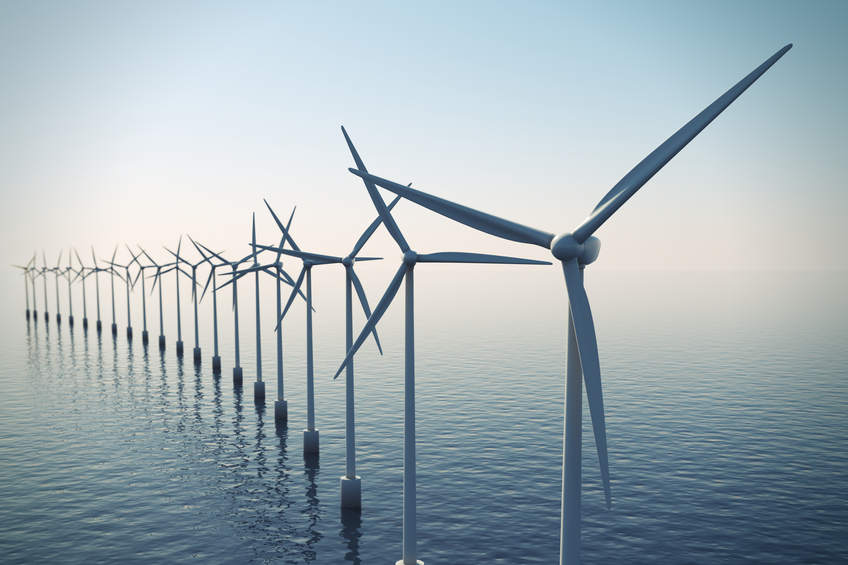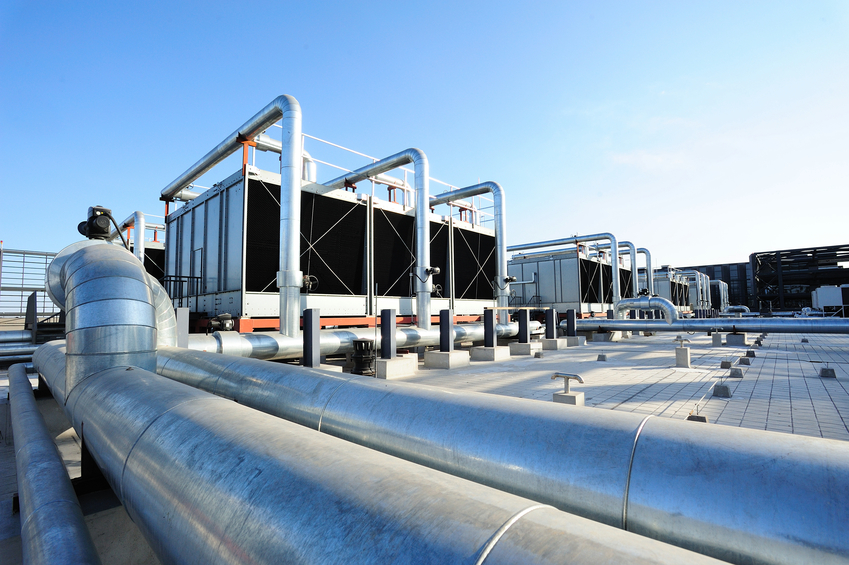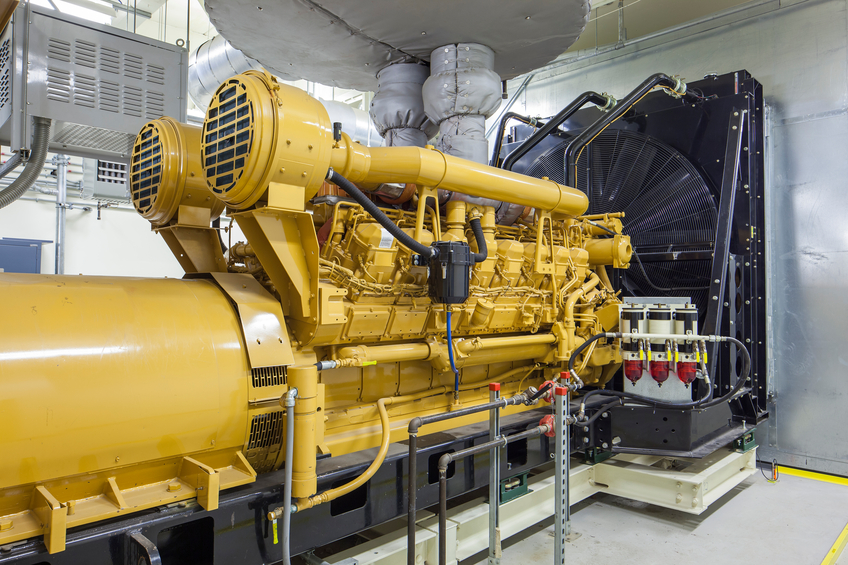Alaska Energy Efficiency 24 PDH Discount Package 1
Home Energy Savings: A Practical Approach (M09-001)
Cooling Tower Key Components and How to Improve Water Efficiency (M01-018)
Advancing Systems and Technologies to Produce Cleaner Fuels (P03-003)
Premium Efficiency Motor Selection and Application Guide (E07-002)

This online engineering PDH course provides a brief overview of wind turbine technology and its associated components, discusses the financial considerations and the technological improvements that would be required to increase the reliance on wind energy in the future.
Current turbine technology has enabled wind energy to become a viable power source in today’s energy market. Advancements in turbine technology that have the potential to increase wind energy’s presence are currently being explored through areas of study including reducing capital costs, increasing capacity factors, and mitigating risk through enhanced system reliability.
This 4 PDH online course is intended for renewable, sustainability, mechanical, electrical, and industrial engineers, as well as other technical personnel who are interested in gaining a basic understanding of wind turbine technology.
This PE continuing education course is intended to provide you with the following specific knowledge and skills:
- Familiarizing with the basic configuration of the modern wind turbine
- Knowing the options in improving wind turbine technology
- Understanding the technical and financial risks involved in wind technology
- Familiarizing with offshore wind technology
- Learning about distributed wind technology (DWT) and their applications
Upon successful completion of the quiz, print your Certificate of Completion instantly. (Note: if you are paying by check or money order, you will be able to print it after we receive your payment.) For your convenience, we will also email it to you. Please note that you can log in to your account at any time to access and print your Certificate of Completion.

This online engineering PDH course provides information on a wide variety of energy-related topics, ranging from simple weatherization, insulation, heating and cooling system improvements in homes, to installing and maintaining efficient water heaters, home appliances and solar panels.
Every year, a typical family in the United States spends around half of its home energy budget on heating and cooling. Unfortunately, many of those dollars are often wasted, because conditioned air escapes through leaky ceilings, walls and foundations, or flows through inadequately insulated attics, pipes, exterior walls and basements. In addition, many appliances, heating systems and air conditioners aren’t properly maintained, are old and inefficient, compared to models being sold today.
By properly maintaining your existing heating and cooling equipment (or replacing aging units with high-efficiency models), addressing weatherization and insulation issues at your house and getting into the habit of using energy efficiently all the time, you can save 10 to 30 percent (or more) on your utility bills every year. You will also help reduce pollution at utility plants that use fossil fuels to generate electricity.
This 9 PDH online course is applicable to electrical and mechanical engineers as well as energy specialists who are interested in learning more about home energy-saving considerations and the collection of systems that work together to achieve peak energy savings and to increase a home’s overall comfort.
This PE continuing education course is intended to provide you with the following specific knowledge and skills:
- Familiarizing with the major sources of air leaks and energy use in a typical home
- Learning about different sealing and insulating materials, their main characteristics and applications
- Understanding the energy saving considerations for heating and cooling systems
- Learning about a set of energy-related units, ratios and terminologies
- Learning about water heating systems and the different approaches to lowering water-heating costs
- Familiarizing with energy-efficient tips and practices for major home appliances
- Familiarizing with the building blocks of solar PV systems
- Gaining a general overview of contracts, installation, maintenance and monitoring of solar energy systems
Upon successful completion of the quiz, print your Certificate of Completion instantly. (Note: if you are paying by check or money order, you will be able to print it after we receive your payment.) For your convenience, we will also email it to you. Please note that you can log in to your account at any time to access and print your Certificate of Completion.

This online engineering PDH course provides a basic understanding of cooling towers, describes their key components and provides recommendations on how to improve the water efficiency.
Cooling towers are an integral component of many refrigeration systems, providing comfort or process cooling across a broad range of applications. They are the point in the system where heat is dissipated to the atmosphere through the evaporative process, and are common in industries such as oil refining, chemical processing, power plants, steel mills, and many different manufacturing processes where process cooling is required.
This 1 PDH online course is intended for mechanical and environmental engineers as well as others interested in learning more about cooling towers and how to improve their water efficiency.
This PE continuing education course is intended to provide you with the following specific knowledge and skills:
- Understanding the basic cooling tower terms
- Learning the different types of cooling towers
- Learning the system calculations
- Understanding the factors that limit cycles of concentration
- Knowing the system concerns
- Familiarizing with the treatment options
Upon successful completion of the quiz, print your Certificate of Completion instantly. (Note: if you are paying by check or money order, you will be able to print it after we receive your payment.) For your convenience, we will also email it to you. Please note that you can log in to your account at any time to access and print your Certificate of Completion.

This online engineering PDH course provides information on advancements made in systems and technologies related to oil and natural gas development to produce cleaner fuels. It pays special attention to advancements aimed at reducing the environmental impact associated with the production of oil and natural gas. It also discusses the safety conditions for those involved in the development process.
Fossil fuel resources account for 82% of total U.S. primary energy use because they are abundant, have a relatively low cost of production, and have a high energy density—enabling easy transport and storage. The infrastructure built over decades to supply fossil fuels is the world’s largest enterprise with the largest market capitalization. Of fossil fuels, oil and natural gas make up 63% of energy usage. Across the energy economy, the source and mix of fuels used across these sectors is changing, particularly the rapid increase in natural gas production from unconventional resources for electricity generation and the rapid increase in domestic production of shale oil. The United States will, for the foreseeable future, continue to rely heavily upon oil and natural gas to support its economy, national security, and energy security.
This 3 PDH online course is applicable to petroleum, chemical, mechanical and sustainability engineers and other technical personnel who are interested in learning more about the trends in advancing oil and gas development systems and technologies.
This PE continuing education course is intended to provide you with the following specific knowledge and skills:
- Understanding the Oil and Gas industry in the Energy Economy of the United States
- Familiarizing with the latest technological advancements in Oil and Gas
- Learning about the emerging research opportunities and the four themes to address R&D challenges
- Learning the about the Oil and Gas challenges through specific technology assessments
- Understanding the risks associated with the various aspects of oil and natural gas development
- Learning from past oil and natural gas development mistakes and disasters to ensure they are not repeated
Upon successful completion of the quiz, print your Certificate of Completion instantly. (Note: if you are paying by check or money order, you will be able to print it after we receive your payment.) For your convenience, we will also email it to you. Please note that you can log in to your account at any time to access and print your Certificate of Completion.

This online engineering PDH course provides guidance in new motor purchase decisions, and helps in identifying the energy and cost savings for motors that should be replaced with premium efficiency units.
The National Electrical Manufacturers Association (NEMA) adopted a NEMA Premium® efficiency motor standard in August of 2001. A motor can be marketed as a NEMA Premium motor if it meets or exceeds a set of minimum full-load efficiency levels.
These premium efficiency motor standards cover the 1 horsepower (hp) to 500 hp three-phase low-voltage NEMA Design A and B general, special, and definite purpose induction motors that are in widespread use in U.S. industrial facilities. The energy savings from replacing in-service standard and energy efficient motors with premium efficiency motor models can be substantial.
This 7 PDH online course is applicable to electrical and mechanical engineers and professionals who are interested in learning more about the performance, properties, selection and applications of premium efficiency motors.
This PE continuing education course is intended to provide you with the following specific knowledge and skills:
- Familiarizing with the in-service motor population and motor uses in the industrial sector
- Understanding the evolution of voluntary and mandatory motor efficiency standards
- Learning how to evaluate motor efficiency opportunities, address application considerations, and determine cost-effectiveness
- Gaining an overview of currently available and emerging advanced “Super Premium” efficiency motor technologies
- Understanding the preventive and predictive maintenance activities necessary to keep premium efficiency motors operating at peak efficiency
Upon successful completion of the quiz, print your Certificate of Completion instantly. (Note: if you are paying by check or money order, you will be able to print it after we receive your payment.) For your convenience, we will also email it to you. Please note that you can log in to your account at any time to access and print your Certificate of Completion.